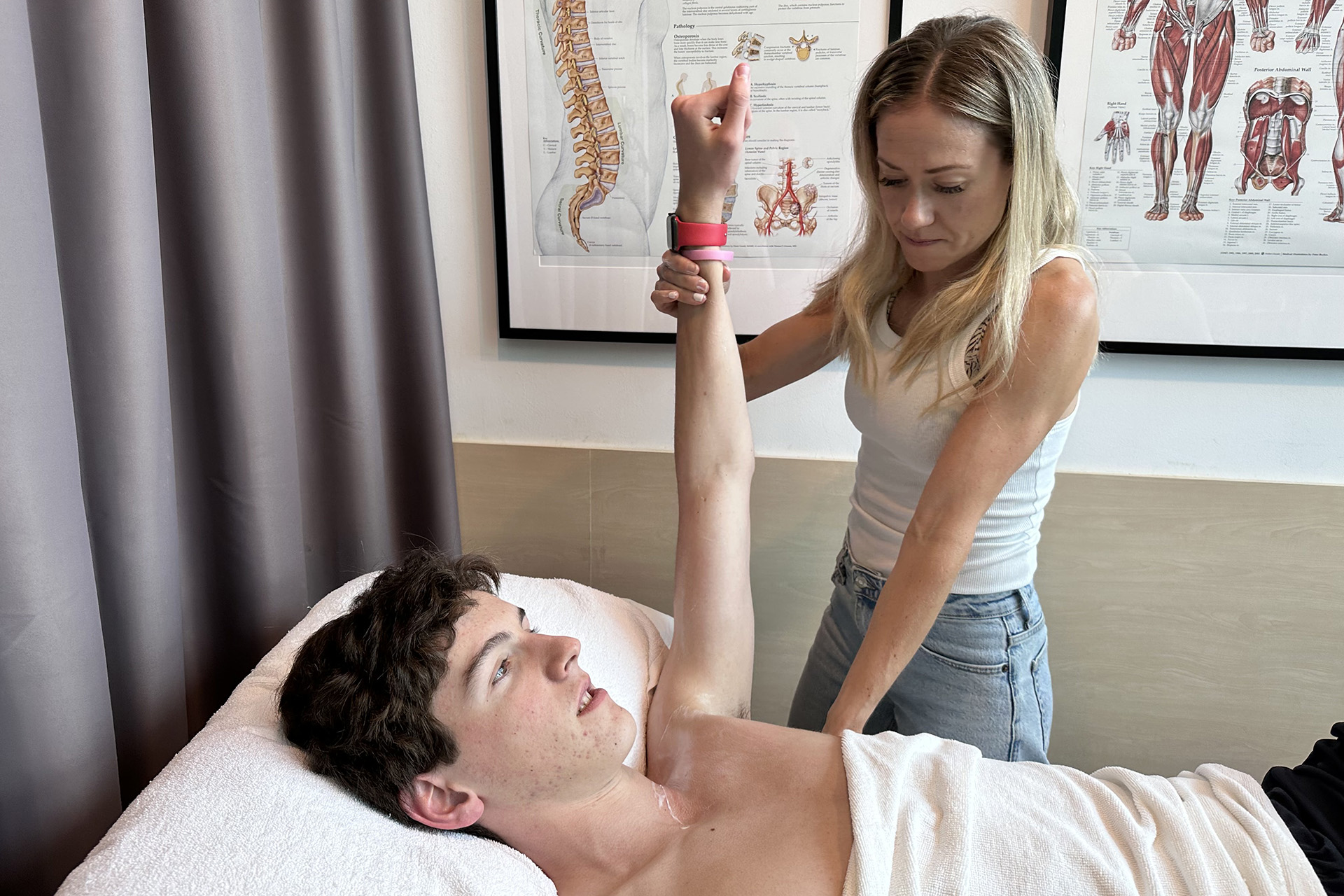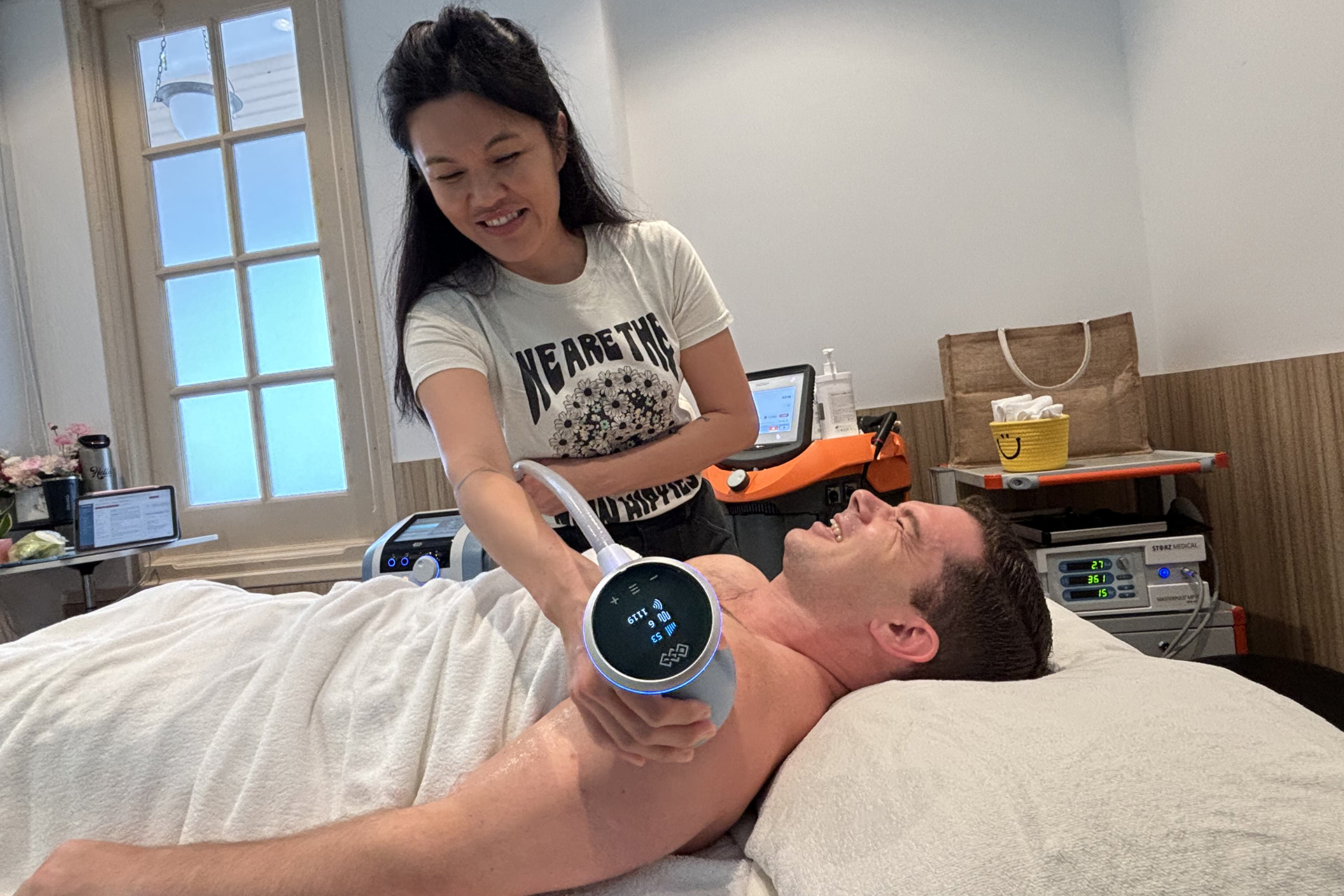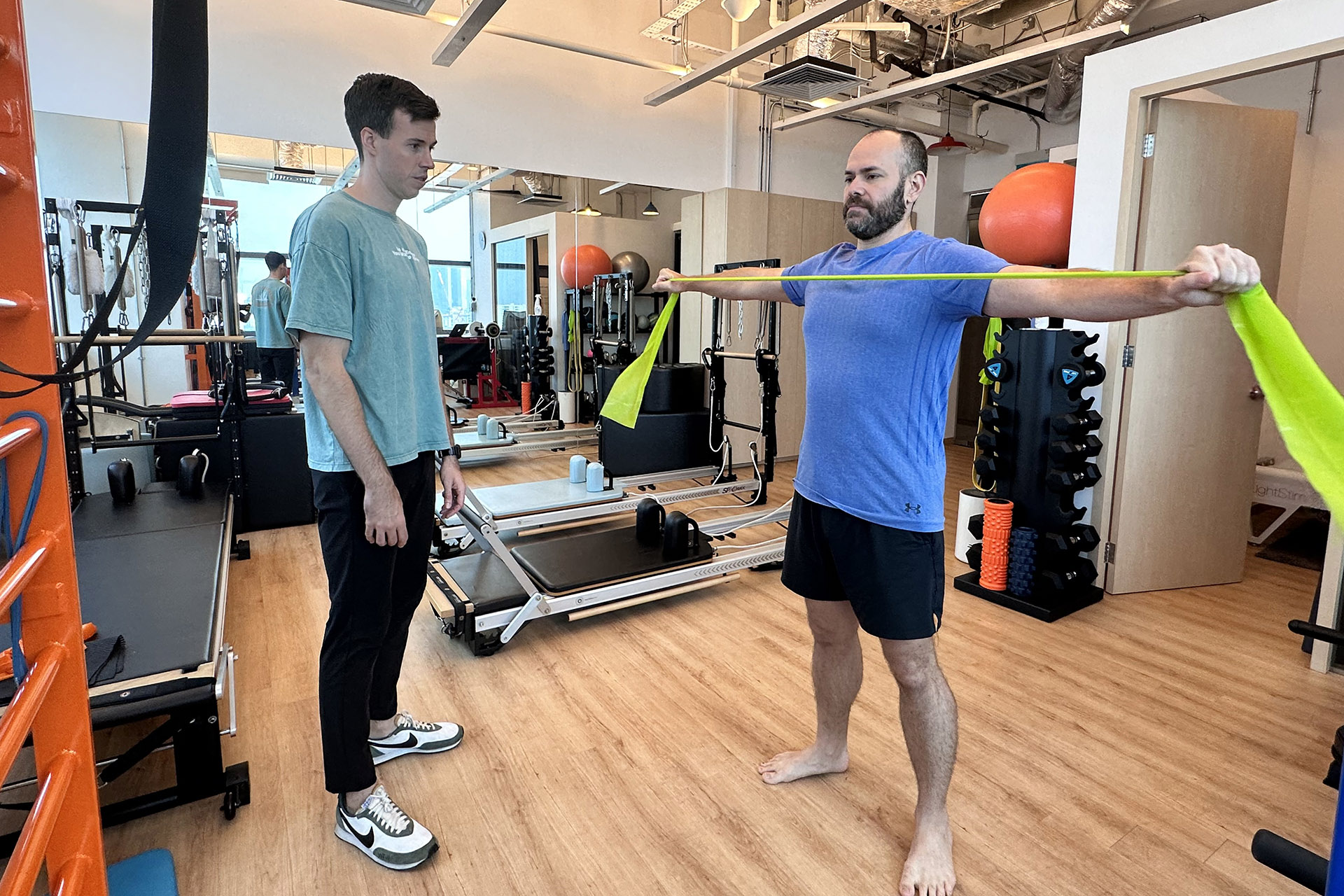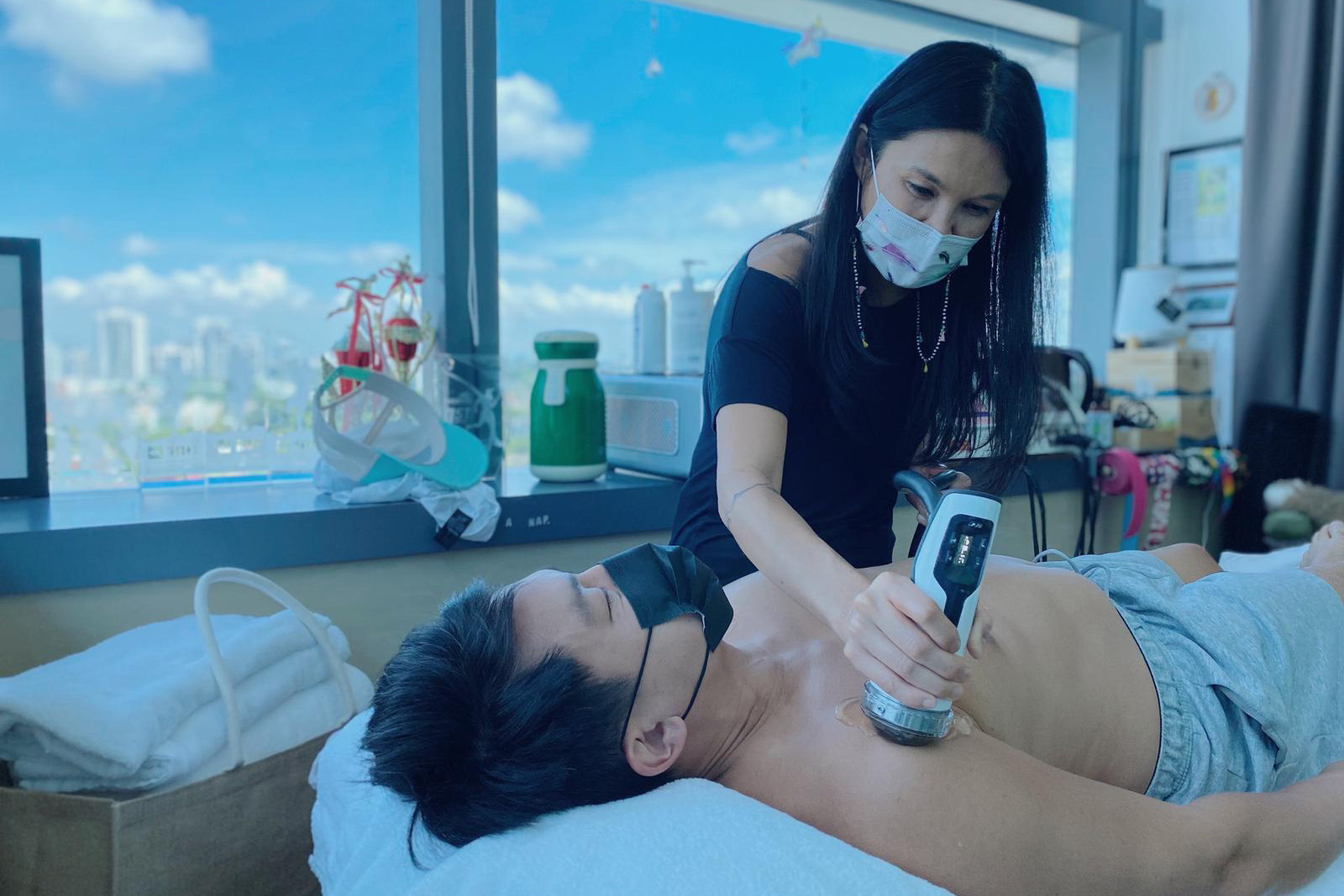Many people feel a sharp pain in their shoulder during regular activities, such as a tennis match. You may have brushed it off as a minor strain. Little did you know, this was the beginning of a journey that would lead you to grapple with one of the most common shoulder ailments, a rotator cuff injury.
Rotator cuff injuries are more than just a pain in the shoulder; they’re a complex interplay of damaged tendons, weakened muscles, and compromised joint function. These injuries can be a significant setback for active individuals, impacting everything from work productivity to quality of life.
Rotator cuff injuries are among the most frequent shoulder problems we see at HelloPhysio, a leading physiotherapy clinic in Singapore. They’re not just an athlete’s problem. We see patients from all walks of life. Anyone from office workers to retirees can suffer from a rotator cuff injury.
Why Is the Rotator Cuff Prone to Injury
What exactly is the rotator cuff, and why is it so prone to injury? The rotator cuff is a group of four muscles and their tendons that surround the shoulder joint, working to stabilize the shoulder enabling a wide range of motions. While remarkably versatile, this complex structure is vulnerable to wear and tear, overuse, and acute injuries.
Understanding the causes of rotator cuff injuries is crucial for prevention and treatment. Age-related degeneration is a common factor, but we also see injuries at the HelloPhysio clinic from repetitive overhead motions, sudden trauma, and even poor posture over time. Years of enthusiastic but improper tennis serves, for example, can take their toll, culminating in a partial tear of the supraspinatus tendon.
Diagnosing a rotator cuff injury often begins with a thorough clinical examination. At HelloPhysio, we look at range of motion, strength and perform specific tests to isolate the affected structures. In some cases, imaging studies like an ultrasound or MRI may be necessary to confirm the diagnosis and assess the extent of the injury.

Once diagnosed, the burning question for many patients is: do rotator cuff injuries heal on their own?
While minor strains may improve with rest and conservative measures, more significant tears often require intervention. The body has an amazing capacity to heal, but proper treatment can significantly speed up recovery and prevent long-term complications.
Treating Rotator Cuff Injuries at HelloPhysio
So, how do you treat a rotator cuff injury? HelloPhysio’s approach is multifaceted, combining cutting-edge technology with time-tested therapeutic techniques. One innovative treatment gaining traction is INDIBA® Activ, a noninvasive radiofrequency therapy to stimulate cellular regeneration and reduce pain. It provides pain relief for many of our patients with rotator cuff injuries. It helps increase blood flow, reduce inflammation, and promote tissue healing at a cellular level.
Complementing INDIBA® Activ is Shockwave Therapy, another advanced modality in rotator cuff injury physiotherapy treatment. This technique uses high-energy sound waves to stimulate healing in the affected tissues. It is particularly effective for chronic cases or injuries that haven’t responded well to other treatments. It can help break down scar tissue and stimulate the body’s natural healing processes.
While these high-tech treatments are important in recovery, traditional hands-on approaches remain invaluable. Manual therapy, skillfully applied by experienced physiotherapists, helps mobilize joints, release tight tissues and restore proper shoulder mechanics.

There’s an art to manual therapy. It’s about feeling the tissues, understanding how they move, and gently guiding them back to optimal function.
As patients progress through their rotator cuff injury recovery, many find Clinical Pilates an excellent complement to their treatment plan. This specialized form of exercise focuses on core strength, flexibility, and body awareness. Clinical Pilates is not just about strengthening the shoulder — it’s about retraining movement patterns and building a strong foundation for overall shoulder health.
Sports massage plays a crucial role in recovery for athletes and active individuals. This targeted technique helps to reduce muscle tension, improve circulation, and enhance overall tissue health. Sports massage is particularly beneficial for addressing the compensatory patterns often developing with rotator cuff injuries.
Rotator Cuff Recovery Time
What about rotator cuff injury recovery time? This is often one of the first questions patients ask, and the answer is not always straightforward. Recovery time can vary significantly depending on the severity of the injury, the patient’s overall health, and their adherence to the treatment plan.
We might see significant improvement in a few sessions for minor strains as we break the pain cycle and scar tissue with HelloPhyysio’s leading treatment modalities. Full recovery can take several months for more severe tears, especially those requiring surgery.
As the shoulder begins to heal, the focus of treatment shifts to prevention. Learning how to prevent rotator cuff injury became integral to physiotherapy sessions. Prevention is about more than just strengthening exercises. It’s about understanding proper body mechanics and knowing when to give the body rest.
Staying active but still listening to your body is key for those looking to avoid the pain and setbacks of a rotator cuff injury.
The road to recovery from a rotator cuff injury may be challenging. With the right approach, patience, and expert guidance, patients can look forward to regaining strength, mobility, and confidence in their shoulders.

As research in shoulder rehabilitation continues to advance, clinics like HelloPhysio remain at the forefront, integrating new techniques with proven methods. For patients grappling with rotator cuff injuries, this commitment to comprehensive, evidence-based care offers the best chance for a full recovery and a return to the activities they love.
Whether it’s returning to a favorite sport, playing with grandchildren, or simply reaching for a high shelf without pain, the goal of rotator cuff injury physiotherapy treatment is clear: to help patients shoulder life’s burdens – both literal and figurative – with ease and comfort again.

